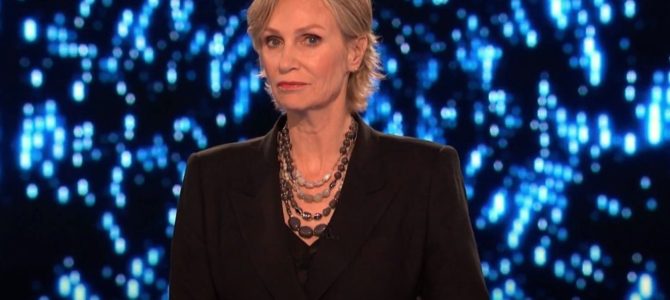
At this point, 2020 seems like the awful Thanksgiving dinner-turned-shouting-match that just won’t stop. On top of a COVID lockdown-induced recession, our culture has become coarser and more vitriolic than ever. Riots and protests have broken out in dozens of cities as both political parties hurl invective at each other.
So, what did NBC decide to return to the airwaves in the middle of this blazing-hot zeitgeist? A remake of an insult-filled show.
It seems sadly ironic that the relaunch of “The Weakest Link” premiered an hour before the first presidential debate. Just as that “contest” featured so many insults, interruptions, and bickering asides as to render it meaningless, so did the show that preceded it exhibit the worst tendencies of our current culture.
‘Survivor’ Meets Quiz Shows
For the uninitiated or unfamiliar, “The Weakest Link” looks, at first glance, like a traditional quiz show. A team of contestants answers trivia questions, accumulating funds towards a cash prize that could total $1,000,000.
The catch comes in the form of a “Survivor”-style twist: Only one of the contestants will win the money, while the rest go home empty-handed. After every round of questions, the contestants vote off one of their number — the weakest link.
The elimination dynamic creates tension atop cloak-and-dagger drama. Contestants could vote off the smartest individual because that person represents the biggest “threat” to the others taking home the prize.
As one might expect, the pressure associated with the competition, and the repeated cycles of voting off colleagues, leads to clashes amongst the contestants. The contestants see each other’s votes after every round, so they know who wants to boot them from the show. The show also features post-match interviews, in which contestants voted off can fire a “parting shot” at those who brought about their departure.
Insulting Quizmaster
In the original American version, however, the most cutting remarks came from the show’s host, Anne Robinson. A British-born journalist, Robinson presented the original version of “The Weakest Link,” which aired on the BBC from 2000 through 2012, while also hosting the American version that aired on NBC in 2001 and 2002.
When promoting the original show, NBC called Robinson “the Queen of Mean,” a title that originally was attached to hotelier Leona Helmsley. The show depicted her as a harsh schoolmarm, delivering caustic quips in a know-it-all style. Robinson’s dismissive catchphrase to a contestant voted off — “You are the weakest link. Goodbye!” — became the show’s hallmark.
In the remake, actress Jane Lynch has assumed the quizmaster role, but the tone Robinson used while hosting remains. Among some of the putdowns used in the remake’s second episode:
- “Who thinks Vin Diesel is a fossil fuel?”
- “Arielle, you were a mess in that round….Your strategy is to be wrong as fast as possible!”
- “Our accounting friend, there is no accounting for your weak answers or your lack of skills.”
- “What is that I smell? That’s the smell of rotting brain cells.”
- “I’ve got a half dozen halfwits half-heartedly trying to win a million dollars.”
- “Who just laid a silent, but deadly, brain fart?”
Ironically, given the prominent putdowns, Lynch also demonstrated her ignorance during the show’s taping. She asked one contestant why he didn’t know the Food and Drug Administration regulates the sizes of eggs. Except that the FDA doesn’t regulate egg sizes; the U.S. Department of Agriculture does. During the quiz round, Lynch asked the question as the writers posed it, but when ad-libbing during a conversation with the contestants, she flubbed her response.
‘The Weakest Link’ IS The Weakest Link
The original American version of “The Weakest Link” lasted but one season as an hourlong primetime show on NBC, and two additional seasons as a syndicated half-hour quiz. Designed to capitalize upon the American quiz show trend that began with “Who Wants to Be a Millionaire?“ (also a British import), the show never caught on or took root with viewers.
Whatever prompted NBC to revive the show at the moment — lower budgets or restrictions on scripted programming due to the pandemic, perhaps — the timing seems particularly discordant. If Americans want to see people trying to look smart while arguing, they don’t need to watch “The Weakest Link”; cable news and C-SPAN already provide myriad examples of Smart People Behaving Badly.









